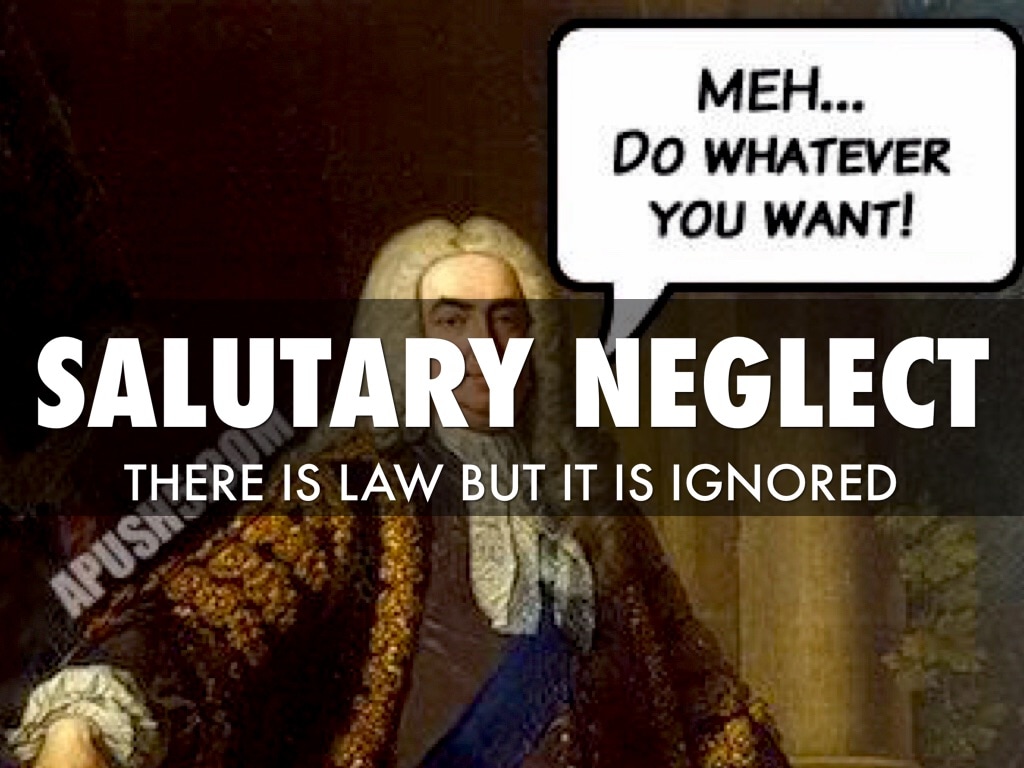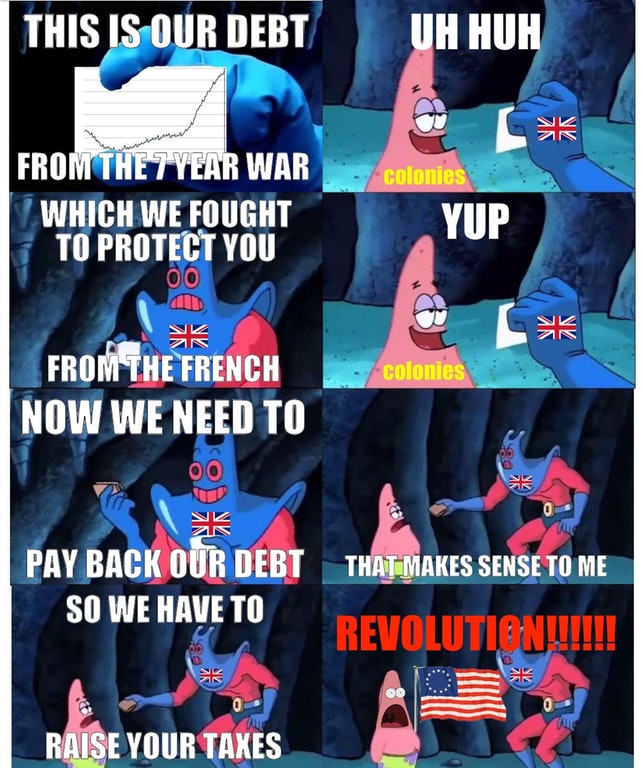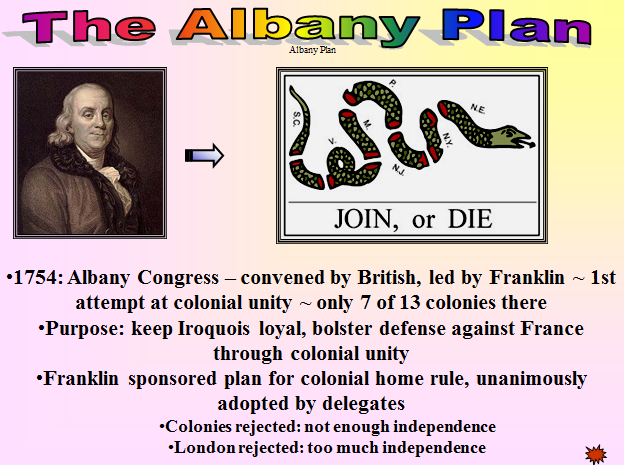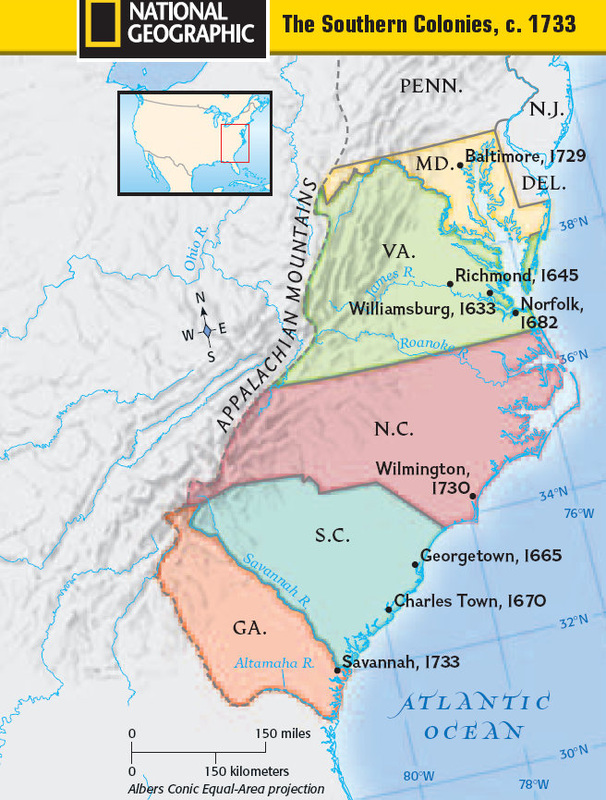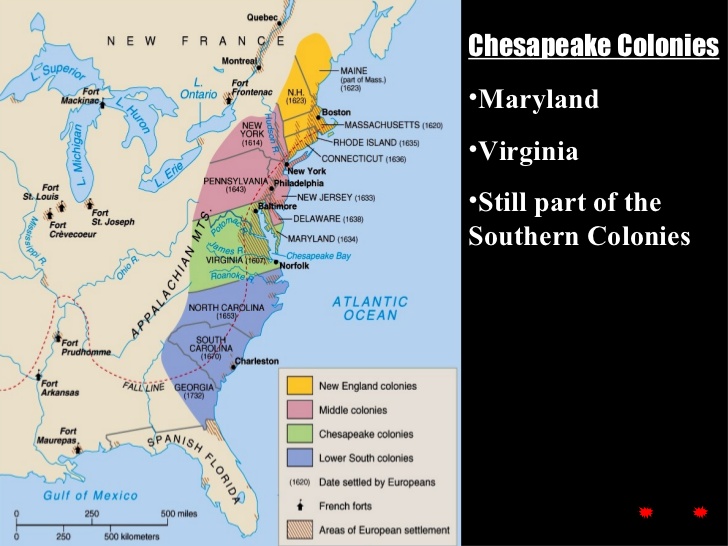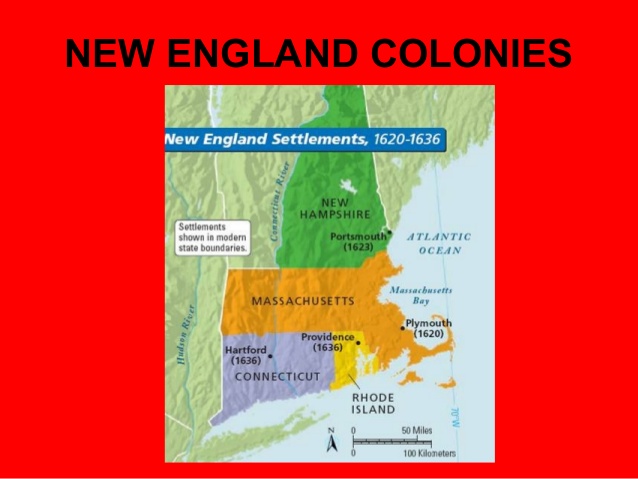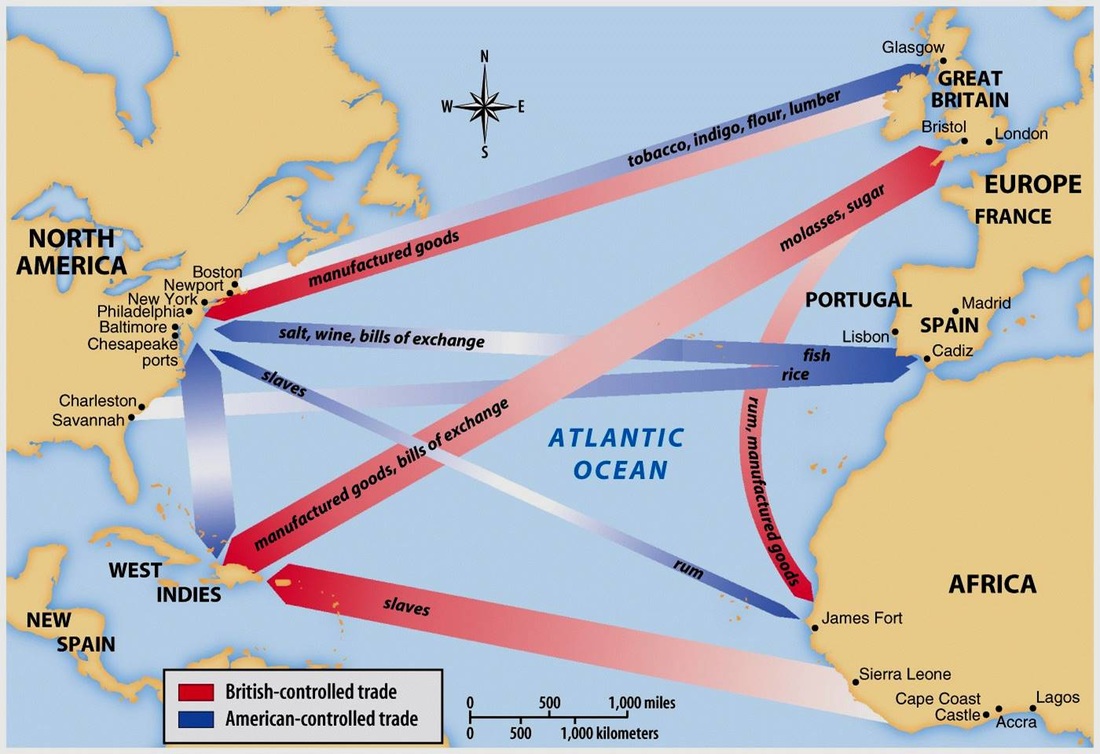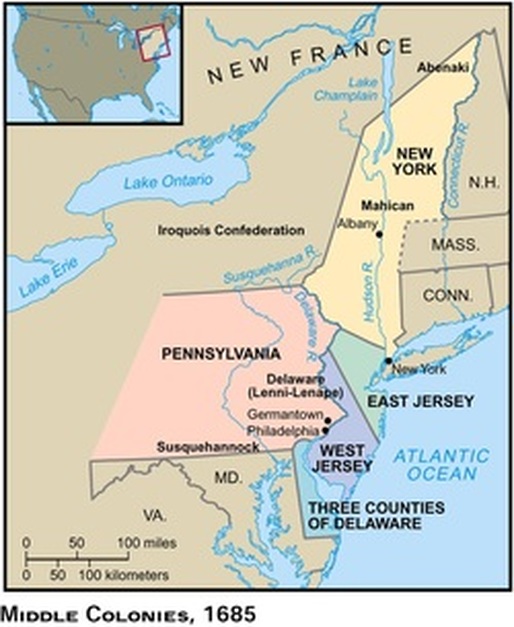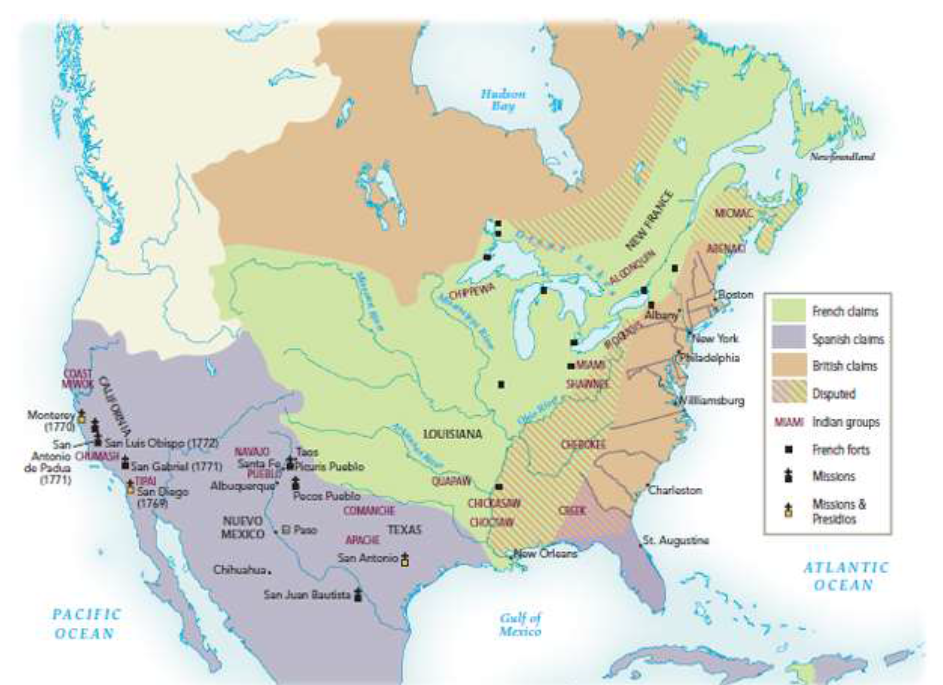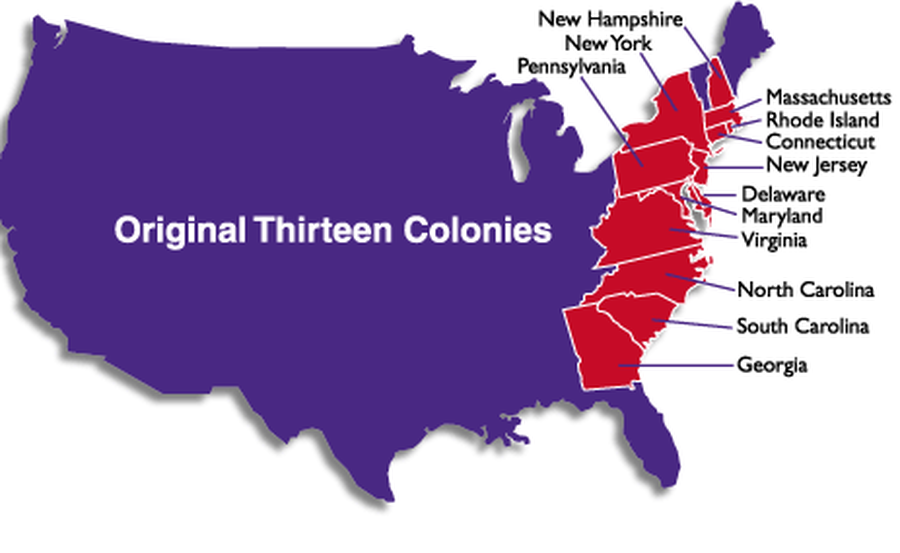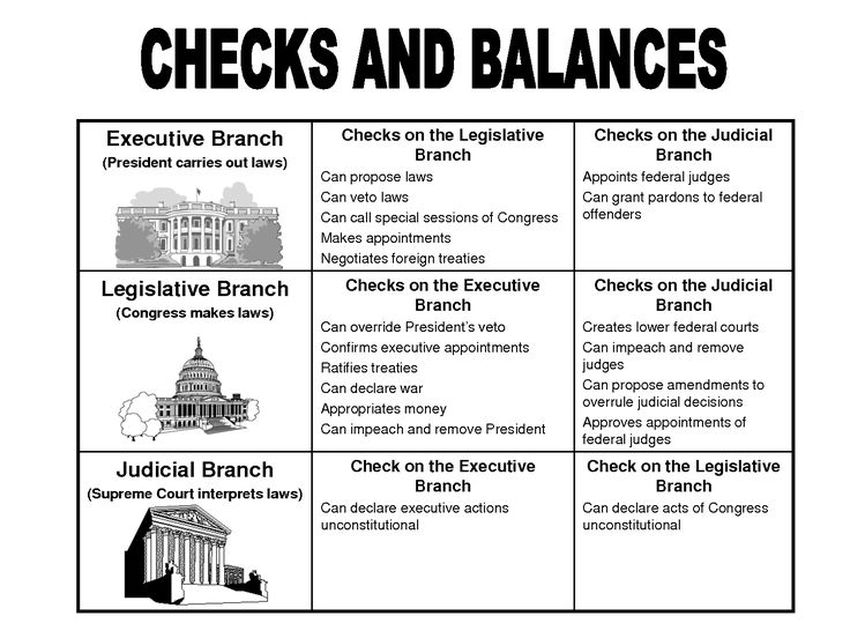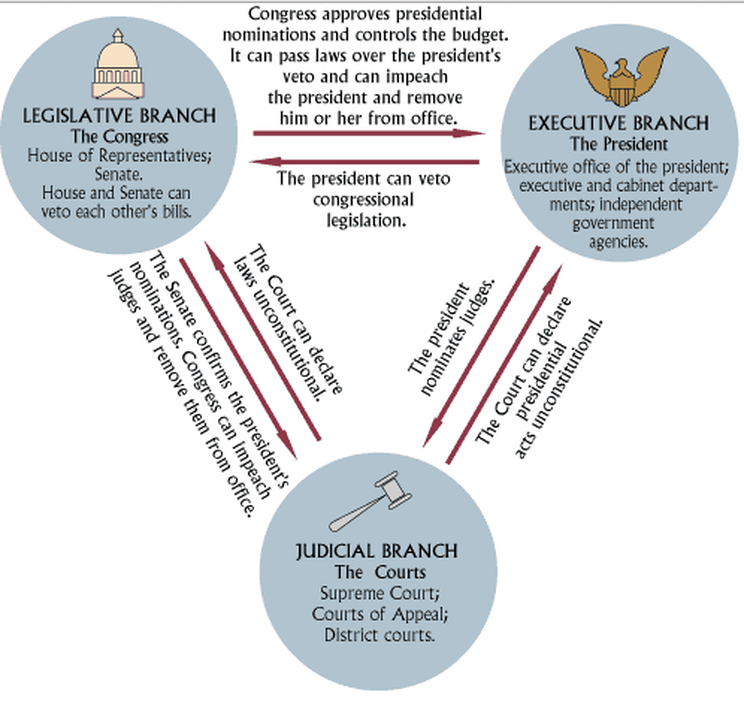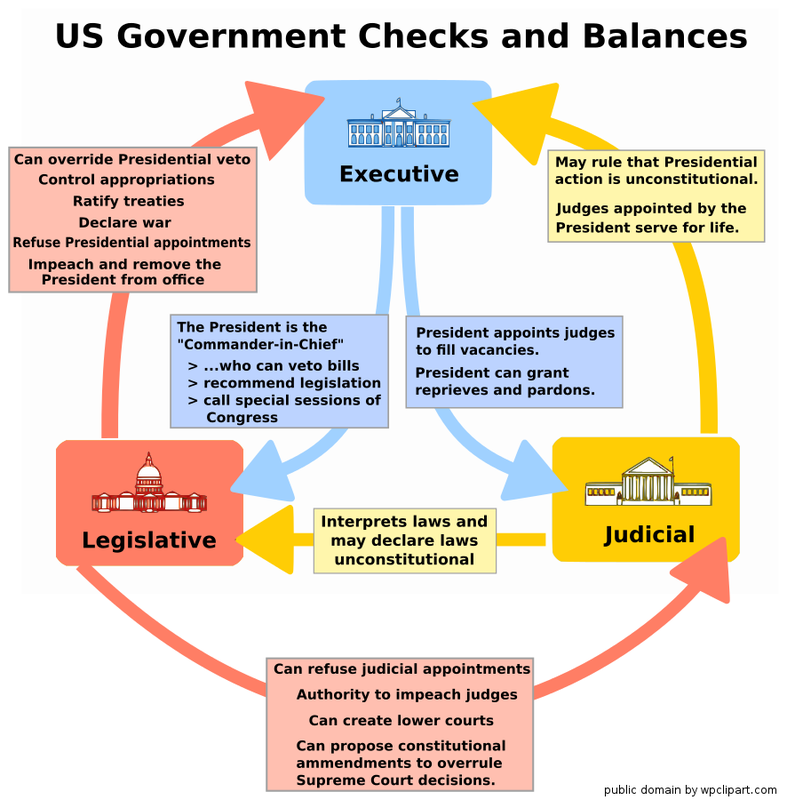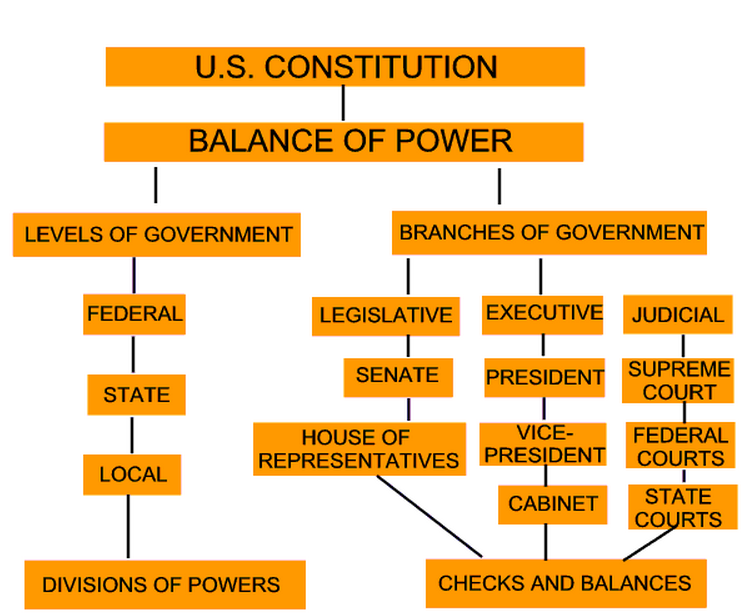Unit 2 & 3
From Jamestown to Jefferson
(1607-1800)
1491-1607 kp1
1607-1754 kp2
1754-1800 kp3
Unit 2 calendar AGENDADates below should be accurate, what we do on each day might be moved/changed depending, but not by much.
Day 1 Tuesday August 22nd
Lecture 2.1 SOCO Flipped- Going over it in class. -Indenture Contract Reading (in-class reading) You take notes at home and we'll go over 2.2, 2.3, & 2.4 on future dates. It is your job to fill in all the notes from 2.3-2.4 as best you can, so that we can work on skill building activities in class and get through the notes faster and more efficiently... Day 2 Wednesday August 23rd Native American Project research Day Native American Project Video or Live Presentations are due 9/5/23 Research/Smore Native American Project Website time or HWP Time Day 3 Friday August 25th (2) SAQ; Quiz 2.1 Deadline: Sep 02, 2023 | 11:45 PM Go over 2.2 Flipped Lecture in class Play Quiz 2.1 once Day 4 Tuesday August 29th -Bacon's Rebellion Video PBS (in-class video), Equiano Reading (in-class reading), Roots video (in-class video) FLIPPED LECTURE Continue to take notes on 2.3, and 2.4 Additional Reading: http://ap.gilderlehrman.org/essay/indian-slavery-americas?period=1 HIPPOS 1- John Rolfe, Day 5 Wednesday August 30th HIPPOS 2- John Martin Berkeley Reading Begin 2.3 Day 6 Friday September 1st Go over SAQs; Explain re-write process Finish 2.3 RE-WRITES ARE OPEN THURSDAY/FRIDAY ONLY during OH or 1st lunch Quiz 2.1 Deadline: Sep 02, 2023 | 11:45 PM Monday September 4th Labor Day- NO SCHOOL!!! Day 7 Tuesday September 5th Common Day Native American Presentation Deadline Day 8 Wednesday September 6th Finish Lecture 2.4 Colonies Before War Assign Short Movie Project Scenes Day 9 Friday September 8th Pass out KP3 Material 13 Colonies Quiz Practice: https://online.seterra.com/en/vgp/3044 LEQ Intro Paragraph (20 min) Work on Short Movie Project Rest of the period. SAQ 1 Re-writes Thursday/Friday September 7th & 8th only days to re-write. Day 10 Tuesday September 12th Unit 2 HWP due as you walk in: 1. (Eight) HIPPOS 2. KP2 Quicksheet 3. KP2 Guided Lecture Note Please have your packet assembled before you walk in please. Unit 2 Exam (55 min) 13 Colonies Quiz Work on Short Movie Project Scenes Rest of the period. KEY PERIOD 3 BEGINS Day 1 Wednesday September 13th Deadline: Oct 14, 2023 | 11:45 PM Begin Lectures 3.1 Road to Revolution Lecture & (Enlightenment HW assignment done during 3.1 lecture) Pass out the rest of Unit 3 papers Day 2 Friday September 15th Continue Lecture 3.1 Road to Revolution Lecture & (Enlightenment HW assignment done during 3.1 lecture) Surprise! Begin 3.2 The Shot heard Round the World Lecture Day 3 Tuesday September 19th Rally/Assembly Schedule KP 2 Group Exam Re-take Continue 3.2 The Shot heard Round the World Lecture Begin 3.3 Creating a Nation Lecture Day 4 Wednesday September 20th NC Take notes on 3.3-3.4 please Begin 3.3 Creating a Nation Lecture I will go over the info next week. Day 5 Friday September 22nd NC Continue taking notes on 3.3-3.4 Quiz 3.1 Deadline: Sep 30, 2023 | 11:44 PM Day 6 Tuesday September 26th Continue going over flipped lectures 3.3 Creating a Nation 3.4 Washington to Jefferson Day 7 Wednesday September 27th
Short Movie Project Due Go over Flipped Lecture 3.4 Washington to Jefferson Day 8 Friday September 29th HWP KP3 Due SAQ (3) :) Day 9 Tuesday October 3rd (COMMON DAY) KP3 Exam Quiz 3.1 Deadline: Oct 14, 2023 | 11:45 PM Day 10 Wednesday October 4th Go over Flipped Lecture 3.4 Washington to Jefferson next week Pass Out Papers & Explain Unit 4. SAQ Grading Activity LecturesFlipped Lecture: (On your Own)
Take notes OYO and I will briefly go over the important stuff from each lecture. Lecture 2.1- Southern Colonies (oyo) Lecture 2.2- N.E Colonization & Middle Colonies (oyo) Lecture 2.4- Colonial Society (oyo) Lecture 2.5- Colonies Before the War (oyo) Lecture 3.1 Road to Revolution
Lecture 3.2 The Shot Heard Round the World Lecture 3.3 Creating a Nation Lecture 3.4 Washington to Jefferson kp2 Key Terms
Additional extra Readings2) Colonial Slavery (FFA) W/U:
http://nebula.wsimg.com/a19343f8a3309ff46ce700f8f889e048?AccessKeyId=E9AACE2A0AB5B10EA5F6&disposition=0&alloworigin=1 Gilder Lehrman
Key Period 2 Gilder Lehrman
Key Period 3 https://secure-media.collegeboard.org/apc/ap09_us_history_form_b_q2.pdf
Group Exam re-take kp2
|
Textbook READINGStudents will need to read through Chapters 2-7.
Content covered in those chapters can and will show up on the Unit 2 and 3 Exams. kp2+3 important timeline
|
|
Unit 2 Coversheet Order
1. (Eight) HIPPOS 2. KP2 Quicksheet 3. KP2 Guided Lecture Notes NOTE: KP2 Quicksheet, GLN & (8) HIPPOS due on 9/12 |
Unit 3 Coversheet Order
1. KP3 Quick Sheet 2. Enlightenment Assignment 3. Sons of Liberty Reading 4. KP3 Guided Lecture Notes 5. TIMELINE G.O. (Just use the 12 short movie events) |
Key period 1
Native american project turnin
Instructions, turn-in links, and group information can all be found on this page: http://www.rooseveltcpush.com/unit-1---pre-colony-days-1491-1607.html
Key Period 2
(1607-1754)
Europeans and American Indians maneuvered and
fought for dominance, control, and security in North America, and distinctive colonial and native societies emerged.
Key Concept 2.1:
Differences in imperial goals, cultures, and the North American environments that different empires confronted led Europeans to develop diverse patterns of colonization.
Key Concept 2.2:
European colonization efforts in North America stimulated intercultural contact and intensified conflict between the various groups of colonizers and native peoples.
Key Concept 2.3:
The increasing political, economic, and cultural exchanges within the "Atlantic World" had a profound impact on the development of colonial societies in North America.
fought for dominance, control, and security in North America, and distinctive colonial and native societies emerged.
Key Concept 2.1:
Differences in imperial goals, cultures, and the North American environments that different empires confronted led Europeans to develop diverse patterns of colonization.
Key Concept 2.2:
European colonization efforts in North America stimulated intercultural contact and intensified conflict between the various groups of colonizers and native peoples.
Key Concept 2.3:
The increasing political, economic, and cultural exchanges within the "Atlantic World" had a profound impact on the development of colonial societies in North America.
Key period 3
1754-1800
British imperial attempts to reassert control over its colonies and the colonial reaction to these attempts produced a new American republic, along with struggles over the new nation’s social, political, and economic identity.
Key Concept 3.1: Britain’s victory over France in the imperial struggle for North America led to new conflicts among the British government, the North American colonists, and American Indians, culminating in the creation of a new nation, the United States.
Key Concept 3.2: In the late 18th century, new experiments with democratic ideas and republican forms of government, as well as other new religious, economic, and cultural ideas, challenged traditional imperial systems across the Atlantic World.
Key Concept 3.3: Migration within North America, cooperative interaction, and competition for resources raised questions about boundaries and policies, intensified conflicts among peoples and nations, and led to contests over the creation of a multi-ethnic, multiracial national identity.
Key Concept 3.1: Britain’s victory over France in the imperial struggle for North America led to new conflicts among the British government, the North American colonists, and American Indians, culminating in the creation of a new nation, the United States.
Key Concept 3.2: In the late 18th century, new experiments with democratic ideas and republican forms of government, as well as other new religious, economic, and cultural ideas, challenged traditional imperial systems across the Atlantic World.
Key Concept 3.3: Migration within North America, cooperative interaction, and competition for resources raised questions about boundaries and policies, intensified conflicts among peoples and nations, and led to contests over the creation of a multi-ethnic, multiracial national identity.
DONT DO- not assigned this year
Individual Project
Enlightenment or Great Awakening/Early influential Americans
Project Guidelines:
1. In a 1 min presentation, you will present on one of the following individuals. You will make a SMORE page, and teach the class about your person.
2. Tie your person to the K.C.O. Some of the individuals are directly mentioned in the KCO, some are implied. You can insert the part(s) of the KCO they are mentioned in, or tie into.
3. Connect your person to another person and briefly mention how they connect to another important person during this time period.
4. Creation. Get creative, and create something cool. Wall worthy/Fridge worthy creations. (Think: Rap, song, video, painting, drawing, etc..) If you make a video, put it on YouTube and link it up to the SMORE page.
1. In a 1 min presentation, you will present on one of the following individuals. You will make a SMORE page, and teach the class about your person.
2. Tie your person to the K.C.O. Some of the individuals are directly mentioned in the KCO, some are implied. You can insert the part(s) of the KCO they are mentioned in, or tie into.
3. Connect your person to another person and briefly mention how they connect to another important person during this time period.
4. Creation. Get creative, and create something cool. Wall worthy/Fridge worthy creations. (Think: Rap, song, video, painting, drawing, etc..) If you make a video, put it on YouTube and link it up to the SMORE page.
|
1. François-Marie Arouet (Voltaire)
2. Baron de Montesquieu 3. John Locke 4. Adam Smith 5. Mary Wollstonecraft 6. Jean- Jacques Rousseau 7. Cesare Beccaria 8. Thomas Paine 9. Ben Franklin 10. Thomas Jefferson 11. John Adams 12. Abagail Adams 13. John Rolfe 14. John Smith 15. Sir Edmund Andros 16. Nathaniel Bacon 17. Chief Little Turtle 18. Mercy Otis Warren |
19. Olaudah Equiano
20. Jemmy (AKA: Cato) 21. Metacom (King Philip) 22. William Berkeley 23. William Bradford 24. John Winthrop 25. William Penn 26. Jonathan Edwards 27. George Whitefield 28. John Peter Zenger 29. Paxton Boys 30. Roger Williams 31. Anne Hutchinson 32. Chief Pontiac 33. Lord Baltimore 34. Touissant L'Overture 35. Simon Bolivar 36. John Dickinson |
5 sentence intro paragraph
1 Context
Before the years of _____(Date), In the greater context of ..... Life/America/Economically/Socially/Politicaly/People, Religion
2 Context
Settlers, Colonists, Citizens, Minorities, Women, Children, Americans, Colonies, States, Young, Old, Wealthy, Impoverished,
(historically accurate details)
3 Context
Connect it to what you're going to prove in the next few sentences
-----------------------
4. Thesis/Argument
5. Thesis/Argument 123
3 points you're going to prove in each of the 3 body paragraphs
1 Context
Before the years of _____(Date), In the greater context of ..... Life/America/Economically/Socially/Politicaly/People, Religion
2 Context
Settlers, Colonists, Citizens, Minorities, Women, Children, Americans, Colonies, States, Young, Old, Wealthy, Impoverished,
(historically accurate details)
3 Context
Connect it to what you're going to prove in the next few sentences
-----------------------
4. Thesis/Argument
5. Thesis/Argument 123
3 points you're going to prove in each of the 3 body paragraphs
ffapush RESOURCES
Native American Perspective
Some scholars have gone so far as to suggest that the Seven Years’ War (often still called by its nineteenth-century name, the French and Indian War) was a watershed comparable in importance to the Revolution itself in shaping North American history. Whether or not that view gains wide credence in general interpretations of the development of the United States remains to be seen. Yet thanks to the work of Jennings, White, and their fellow historians, there can be no doubt that the Seven Years’ War was at the very least an event of surpassing importance to native peoples—the beginning of a great shift in which their centuries of influence over historical outcomes in North America began to wane at last.
Much of what these new works describe concerns the mobilization of intercultural trade relations in the supply and control of labor, the scarcest of precious commodities in colonial America. They demonstrate, above all, that slavery was by no means restricted to people of African descent; rather, the enslavement of native people by other natives and by the Europeans to whom those captives were traded was a crucial component of intercultural commerce and alliance in the seventeenth and early eighteenth centuries. The dimensions of the Indian slave trade, its interpenetration with the practices of crosscultural captivity and adoption, and its heretofore unsuspected economic, social, and cultural significance are only now coming into focus.
Key Period 2 + 3 Review Videos below
|
|
|
|
Big Ideas
1. How did the 7 Year's War alter the relationship between the British and the colonists? 2. What arguments did colonists use to resist Britain's actions after the war? SAQ 10:47 Consolidate -take over Re-write the prompt on your paper, and break the box up into four sections |
|
3.2 Big Ideas
1) How did the Enlightenment ideas lead to the American Revolution? 2) How was the Constitution able to pass in light of conflicting interests? (North vs South) and (Federalists vs Anti-Federalists) 3. How did Protestant Evangelical Religious fervor lead to a New American Identity? |
|
Big Ideas
1. How was Native American life affected after the removal of the French? 2. What led to the development of the first political parties? 3. How did "republican motherhood" affect the roles of women? |
|
|
|
2015 colonies Poster Project |
Which two colonies are in different regions but, share the term restoration Colonies?
ignore below
Colonies poster project. As a class, I need both periods competing against each other to create the best poster/presentation.
I will assign random people into three different groups.
Group 1 will be New England Colonies
Group 2 will be Middle Colonies
Group 3 will be the Southern Colonies
Both 1st and 5th period will have the same amount of time to complete this project, the better looking poster will receive 5 extra credit points. Everyone will be given 10 points based on effort, with the winning posters will being displayed on the wall, for everyone to see. It is possible to score a 15/10 on this assignment. Don't be the group that earns an eight or a nine out of 10. Easy points.
Take this assignment seriously. I want this to be a fun/competitive assignment/poster/group project. Collaboration. It's good for you.
Every student must also share one thing that they learned from the poster activity when your group presents/to exit the classroom.
You may use the class website, lectures, the textbook, and the review videos to complete the posters in the allotted time frame. Remember, time is of the essence. First Period, set the bar high please.
I suggest you have a designated Research Team scouring the notes/lectures/text for their perspective, and helping the writer as best as you can as the researcher. That means chunking the information, so others may learn from your poster.
Someone with good penmanship will have to write down the words.
You will need to have a trustworthy individual who can trace/draw/color/beautify the poster. Choose wisely.
What your poster needs to have (Criteria):
Perspective (Native Americans, Slaves, Differing European Groups, Men, Women, Children)
All thirteen colonies need to be drawn and identified.
The colonies with which you have been assigned must be colored and the focus of your poster.
and you must answer the Big Idea below.
How did climate and geography affect the development of British Colonies?
(Consider how your region is different from the other two)
I will assign random people into three different groups.
Group 1 will be New England Colonies
Group 2 will be Middle Colonies
Group 3 will be the Southern Colonies
Both 1st and 5th period will have the same amount of time to complete this project, the better looking poster will receive 5 extra credit points. Everyone will be given 10 points based on effort, with the winning posters will being displayed on the wall, for everyone to see. It is possible to score a 15/10 on this assignment. Don't be the group that earns an eight or a nine out of 10. Easy points.
Take this assignment seriously. I want this to be a fun/competitive assignment/poster/group project. Collaboration. It's good for you.
Every student must also share one thing that they learned from the poster activity when your group presents/to exit the classroom.
You may use the class website, lectures, the textbook, and the review videos to complete the posters in the allotted time frame. Remember, time is of the essence. First Period, set the bar high please.
I suggest you have a designated Research Team scouring the notes/lectures/text for their perspective, and helping the writer as best as you can as the researcher. That means chunking the information, so others may learn from your poster.
Someone with good penmanship will have to write down the words.
You will need to have a trustworthy individual who can trace/draw/color/beautify the poster. Choose wisely.
What your poster needs to have (Criteria):
Perspective (Native Americans, Slaves, Differing European Groups, Men, Women, Children)
All thirteen colonies need to be drawn and identified.
The colonies with which you have been assigned must be colored and the focus of your poster.
and you must answer the Big Idea below.
How did climate and geography affect the development of British Colonies?
(Consider how your region is different from the other two)
Timeline Project of: (Minority Labor and Resistance)
Using the multiple sets of textbooks
Research and record all: Native American, Slave and
Indentured Servant rebellions and/or other forms of resistance from the time period (1491-1800) [Key Period 1-Key Period 3]
HOMEWORK: Come up with 3-5 sentence summaries for each of the (20) events, attached and turned in with the stamped colored-in timeline due: __________________________
Include: Historical significance/location, Causes, Outcome
Using the multiple sets of textbooks
Research and record all: Native American, Slave and
Indentured Servant rebellions and/or other forms of resistance from the time period (1491-1800) [Key Period 1-Key Period 3]
HOMEWORK: Come up with 3-5 sentence summaries for each of the (20) events, attached and turned in with the stamped colored-in timeline due: __________________________
Include: Historical significance/location, Causes, Outcome
